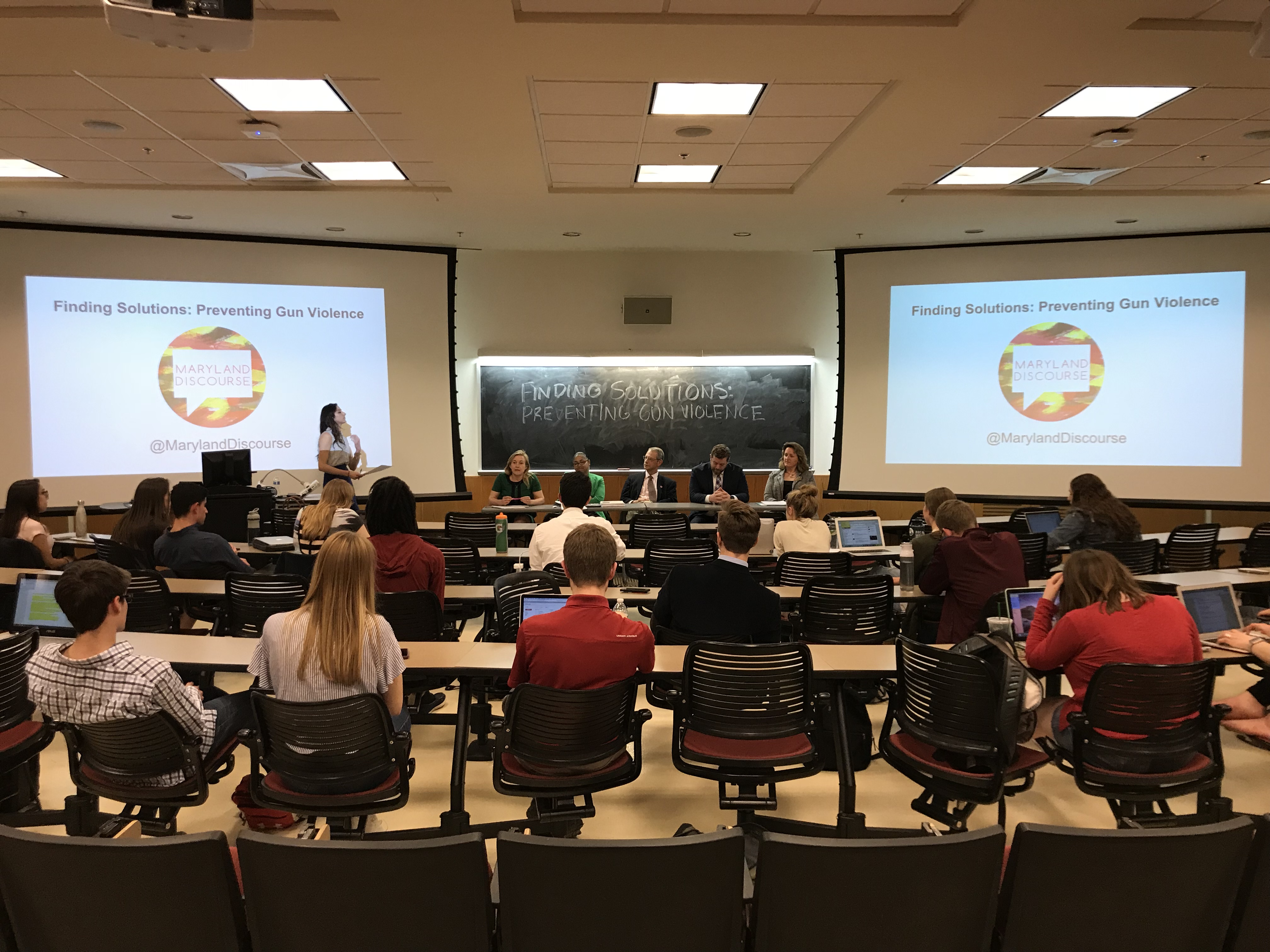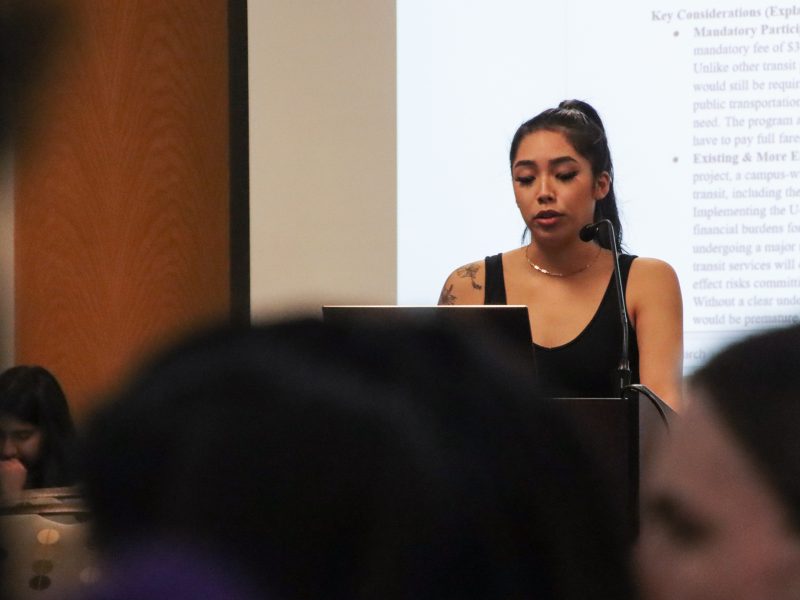By Hannah Himes
For The Diamondback
Two members of the Maryland House of Delegates discussed the controversial and multifaceted issue of gun violence at a University of Maryland panel Thursday.
Del. Joseline Peña-Melnyk (D-Anne Arundel and Prince George’s) and Del. Deborah Rey (R-St. Mary’s) joined three other panelists to discuss a broad range of topics relating to gun violence, including mass shootings, recent gun legislation passed in Maryland, suicide and mental health.
Rey said she hoped each side of the gun debate would achieve an “understanding” at the panel. In March, a shooting at Great Mills High School — which is in Rey’s district — claimed the lives of two students, including the suspected shooter.
“Owning a firearm does not make you dangerous,” Rey said.
[Read more: UMD faculty, staff and students meet to discuss gun violence action committee]
The month before the Great Mills shooting, 17 people were killed in a high school shooting in Parkland, Florida. Survivors of the shooting have spoken out against gun violence and have advocated for reform. One product of the student’s work was the March for Our Lives in Washington, D.C., which organizers estimated about 800,000 people participated in.
Peña-Melnyk noted research has shown mass shootings are more common in the U.S. than in most other developed countries. She said deciding gun control policies isn’t easy.
“It’s not that we have all the answers, because we don’t,” Peña-Melnyk said. “You try to do what’s right and you try to do what’s fair.”
[Read more: “We’re going to the be the future”: UMD students take to DC in nationwide March For Our Lives]
About 40 people attended the event, which was hosted by Maryland Discourse, a student group that hosts political and social discussions on the campus.
“We try to make our events pretty topical to whatever is going on throughout the country in terms of our political discourse,” said the event’s organizer, Gideon Epstein, a sophomore government and politics major.
The panel discussed recent gun laws signed by Maryland Gov. Larry Hogan, including a ban on bump stocks — devices that increase a gun’s rate of fire to near that of an automatic weapon — and other restrictions on firearm access for individuals convicted of domestic violence or presenting other “red flags,” such as threatening violence.
Peña-Melnyk cosponsored all three laws. She also cosponsored the Firearm Safety Act of 2013, which banned assault weapons in Maryland.
Stephen Gutowski, a panelist and staff writer for the Washington Free Beacon, said the red flag law is vital to the gun violence debate because it is less well-known than other solutions, such as gun bans.
Another panelist, Liz Banach, the executive director of Marylanders to Prevent Gun Violence — a nonprofit that supports gun control measures — said she wanted the debate to focus on mental health.
“I think it’s really important to recognize that most individuals who suffer from mental illness are more likely to be victims of violence than they are to be perpetrators of violence,” she said.
Boris Lushniak, a panelist and the public health school dean, said gun violence and suicides can’t be treated as separate issues.
“If I’m contemplating suicide, there is a mental health issue that hasn’t been resolved,” he said.
Suicide accounts for about two-thirds of gun deaths in America each year, according to the U.S. Justice Department. About 22,000 people took their own life with a gun in 2015, CBS News reported.
“There’s got to be a pathway of prevention,” Lushniak said.
Senior aerospace engineering major Jacob McCullum said he was frustrated by the emotion attached to the gun violence issue, but added that he valued Lushniak’s perspective.
“He came in as the middle ground, from a data perspective,” McCullum said. “I really thought that was valuable.”



